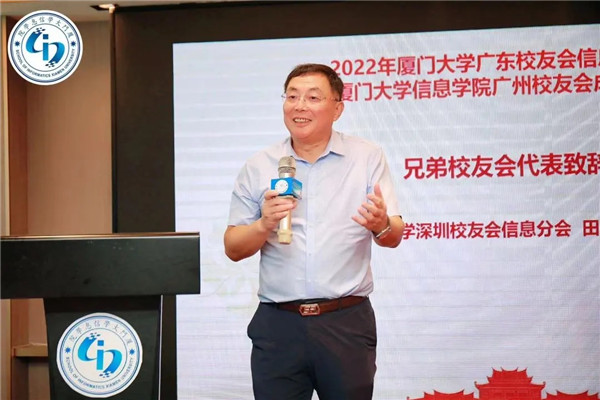
“China Inbound Roundtable: Foreign Investment Law and New Prospects of FDI in China” during the 5th China & Globalization Forum held in Beijing on April 14, 2019. [Photo courtesy of the 5th China & Globalization Forum]
Business leaders and executives of chambers of commerce around the world gathered in Beijing on Sunday, April 14 for the 5th China and Globalization Forum. A roundtable discussion was hosted at the forum on the impact of the recently-passed Foreign Investment Law (FIL) on Foreign Direct Investment (FDI) in China.
Forty years after reform and opening up, China updated its laws on foreign investment this March, signaling its continuous effort to increase its openness to the world. During the roundtable discussion, representatives had in-depth exchanges of views concerning critical issues such as relaxing restrictions on market access, ensuring impartial regulation as well as permitting the accorded national treatment to foreign capital.
Representatives on both sides shared about the promising prospects of FDI in China due to the FIL’s role in addressing regulatory barriers, promoting economic growth, and protecting IPR. Regarding the upcoming rules of implementation of the FIL, Allan Gabor, president of Merck China, expressed his hope for a more transparent and implementable legislation. He also recognized the rapid development of the artificial intelligence (AI) industry in China, and the role AI plays in contributing to Chinese innovation.
During the discussion, controversial issues such as the different interpretation toward mandatory transfers of core technology and trade secrets, as well as the concern over national security from foreign investment were also addressed. Tim Stratford, chairman of AmCham China, talked about improving the mechanism for dispute settlement and suggested that there should be experts to solve technical problems, and administrative decisions to be based on those experts’ professional opinions. He also emphasized that the consensus between China and foreign countries should build on, in the first place, the spirit of the law, rather than the letter of it.
Zhou Yanli, former vice chair of the China Insurance Regulatory Commission and CCG advisor, replied to this issue saying that “the lack of respect for IPR has its historical roots in China, and this is what the FIL is for – to help Chinese businesses stand in line with international practices.”
In response to the question on the bottom line of both Chinese regulatory bodies and foreign investors, Fang Fang, partner of Waterwood Investment Holdings and CCG vice chair, noted that “China, of course, needs foreign investment but China also needs to realize the importance of providing a business environment with fair competition. Since the majority of Chinese investment still goes to U.S. today, the Sino-U.S. relationship in this regard must be based on the principle of mutual benefit and fair trade.”
Yang Xiaoping, president of BP China added that foreign investment is contingent on how it improves the lives of people for “as long as people’s lives are improved and pollution is reduced, any foreign investment should be received cordially and welcomed in China.”






